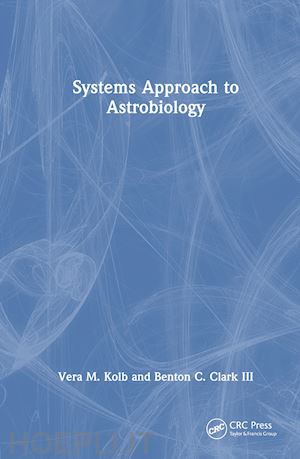Vera M. Kolb earned her BS in Chemical Engineering and MS in organic chemistry from Belgrade University, and PhD in organic chemistry from Southern Illinois University at Carbondale. She is Professor Emerita of Chemistry at University of Wisconsin-Parkside (UW-P). During her research at the NASA Specialized Center of Research and Training (NSCORT), she collaborated with Leslie Orgel (Salk Institute) and Stanley Miller (UCSD). In 1992, she received the UW-P Award for Excellence in Research and Creative Activity. She later researched sugar-silicates in a prebiotic context with Joseph Lambert (Northwestern University). In 2002, she was inducted into the Southeastern Wisconsin Educators’ Hall of Fame. She has over 150 publications, patents, and books, and has received numerous research awards from the Wisconsin Space Grant Consortium/NASA. Prof. Kolb is editor/contributor for several books, including "Astrobiology, An Evolutionary Approach" (CRC, 2015), the 54-chapter "Handbook of Astrobiology" (CRC, 2019, and co-authored with Benton Clark "Astrobiology for a General Reader: A Questions and Answers Approach" (CSP, 2020). Benton Clark earned his PhD in Biophysics from Columbia University and a Masters in Nuclear Physics and Engineering from the University of California, Berkeley. He is currently Senior Scientist at the Space Science Institute. In 1976, the XRFS instrument he designed for the Viking missions discovered the element composition and high salt content of martian soils. His 40-plus years of experience formerly working with engineers at Lockheed Martin aerospace spanned development of more than a dozen spacecraft, including Mars orbiters and landers, missions to Venus, Jupiter, the Moon, and sample return missions to comet Wild-2, L1 solar wind, and asteroid Bennu (for which he led design of the sampling system). He is also on the science teams for all four NASA rover missions to Mars (Spirit, Opportunity, Curiosity, Perseverance). His extensive publications include over two dozen in the journals Science and Nature.











